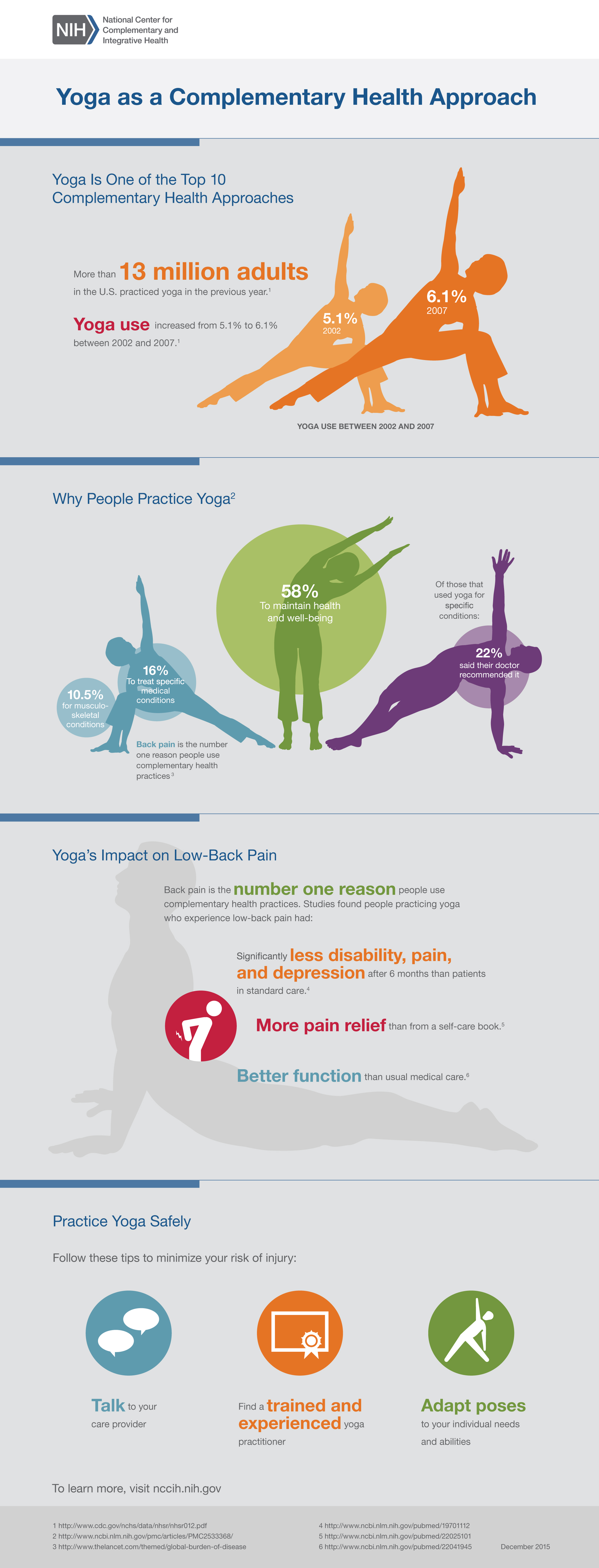Yoga Based Treatment for Veterans
with mTBI and Post-Concussive Headaches
Military Personnel with Mild Traumatic Brain Injury
Project
.jpg?sfvrsn=4d2c41b9_0&MaxWidth=250&MaxHeight=250&ScaleUp=false&Quality=High&Method=ResizeFitToAreaArguments&Signature=5D60DD2360F63E153A2E433FE6FF5EDA33B77F70)
It is well known that military personnel are returning from recent conflicts with notable rates of mild traumatic brain injury (mTBI) and associated persistent post-concussive symptoms (PCS), including headaches and emotional distress. Such symptoms can negatively impact the performance of those on Active Duty, throughout deployment, in and post-combat, as well as following discharge (Veterans). Because of these far-reaching effects, mTBI and associated comorbidities pose a significant challenge and burden to Service Members/Veterans, their families, the Department of Defense (DoD), and the Veterans Health Administration (VHA), and local, regional and national resources including, health care, educational, and vocational systems.
Optimally, an intervention for those with chronic post-concussive headaches (PCH) would show efficacy at reversing post-mTBI adversity, and be able to be utilized with minimal stigma. In addition, the intervention should be highly accessible, low cost, be able to be self-sustaining (e.g., portable) and with minimal side effects.
One potential intervention is yoga, a practice involving physical postures, breath awareness and exercises, and mindfulness meditation.
As such, the goal of this study is to learn more about a yoga-based treatment for Veterans with mTBI and Post-Concussive Headaches.
This project is being funded by the Colorado Traumatic Brain Injury Trust Fund (part of Mindsource Brain Injury Network), Contract IHEA #101374

Our Team

Jeri Forster PhD
Data and Statistical Core Director, VA Rocky Mountain Mental Illness Research Education and Clinical Center (MIRECC)
Associate Professor
- Physical Medicine and Rehabilitation (SOM)
Dr. Jeri Forster, PhD, is a biostatistician, Assistant Professor in the Department of Physical Medicine and Rehabilitation (PM&R), and the Director of the Data and Statistical Core (DASC) in the VA Rocky Mountain Mental Illness, Research, Education, and Clinical Center (MIRECC) for Suicide Prevention. Dr. Forster serves on the Board of Governors for the VA/DoD Mortality Data Repository and on the Editorial Board for the Journal of Head Trauma Rehabilitation. Her primary areas of research collaboration include suicide, traumatic brain injury, co-morbid psychiatric disorders, physical therapy for older and medically complex individuals.
Areas of Expertise
Longitudinal data analysis, handling nonignorable dropout, varying-coefficient models, RCTs, pilot and feasibility/acceptability studies.
Awards
Grants
- Military Suicide Research Consortium
- A novel approach to identifying behavioral and neural markers of active suicidal ideation: Effects of cognitive and emotional stress on working memory in OEF/OIF/OND Veterans. Role: Co-Investigator
- Military Suicide Research Consortium
- Home-Based Mental Health Evaluation (HOME) to Assist Suicidal Veterans with the Transition from Inpatient to Outpatient Settings: A Multi-Site Interventional Trial. Role: Co-Investigator
Yoga as a Complementary Health Approach
Yoga is a practice involving physical postures, breath awareness and exercises, and mindfulness meditation. Yoga is increasingly being used as a complementary and alternative medicine (CAM) intervention for those experiencing physical and psychological distress.
